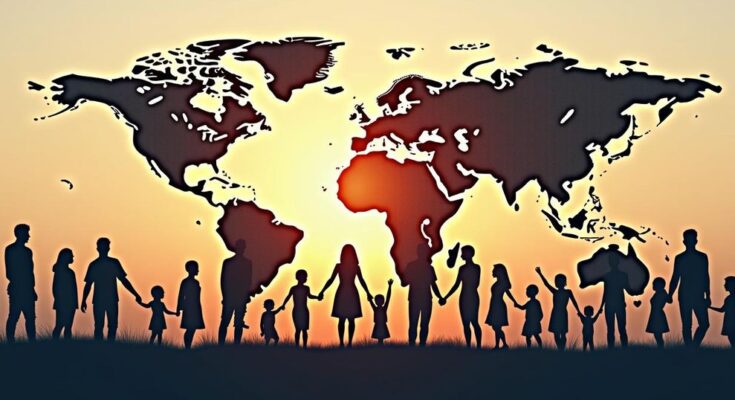At the United Nations General Assembly, the Philippine government emphasized multilateralism to tackle international disputes and global challenges. Foreign Affairs Secretary Enrique Manalo presented the Philippines’ stance on reforming multilateral mechanisms, rejecting narratives of rivalry in the South China Sea, and urging developed nations to honor climate commitments. The discussion follows the adoption of the “Pact for the Future,” aiming for global solutions to pressing issues.
During the recent United Nations General Assembly’s Annual High-Level Week, the Philippine government underscored the importance of multilateralism in resolving international disputes. Foreign Affairs Secretary Enrique Manalo, representing the Philippines, articulated the nation’s commitment to reinvigorate the United Nations agenda in response to critical global challenges such as the conflicts in Ukraine, Gaza, and Sudan, as well as pressing issues like humanitarian crises, climate change, persistent poverty, inequality, and disruptive technologies. Secretary Manalo called for necessary reforms in multilateralism to effectively tackle these crises and to achieve global development targets. As a founding member of the United Nations, the Philippines contributes actively to collaborative international solutions across various domains. Manalo emphasized the need to dispel any narratives that present the South China Sea as a battleground for great power rivalry. He asserted that adherence to the rule of law is vital for maintaining peace and stability in the Asia-Pacific region. Reiterating the Philippines’ steadfast commitment to an international rules-based system, Secretary Manalo reaffirmed the nation’s dedication to the principles outlined in the UN Charter and the Manila Declaration on the Peaceful Resolution of Disputes, particularly in relation to its sovereignty in the South China Sea. During the High-Level Week from September 22 to 28, 2024, Secretary Manalo led a delegation comprising officials from various Philippine governmental departments. Prior to the High-Level Week, Secretary Manalo also participated in the Summit of the Future, where a consensus document dubbed the “Pact for the Future” was adopted, highlighting the necessity for cooperative efforts to address global issues. In his address to the UN General Assembly, he remarked that “The Pact for the Future is a testament that global problems require global solutions and that a better world is possible when States commit to working together towards a common vision”. He outlined the blueprint’s 52 action points aimed at enhancing multilateral initiatives for urgent global concerns. Manalo urged developed nations to honor their commitments under the UN Climate Change Convention and the Paris Agreement while spotlighting the Philippines’ vulnerability to climate impacts, thereby positioning the country as a strong advocate for bolstering climate and disaster resilience. Throughout the High-Level Week, the Secretary engaged in numerous high-level meetings, interacting with leaders and foreign ministers from over 46 countries, aimed at fostering cooperation in addressing global challenges.
The recent discussion at the United Nations General Assembly is set against a backdrop of heightened global tensions, marked by significant conflicts and humanitarian crises across various regions. The Philippines, a founding member of the United Nations, is notable for its advocacy of multilateralism – the engagement of multiple countries in political decision-making and cooperation. This engagement is particularly crucial in the current geopolitical climate, where issues such as climate change and regional tensions dominate discussions. The Philippine government seeks to leverage multilateral platforms to enhance cooperation and collective problem-solving among nations.
In conclusion, the Philippine government’s push for multilateralism at the UN General Assembly signals a proactive approach to addressing global challenges. Through calls for reform in multilateral mechanisms and a commitment to international laws, the Philippines aims to promote regional peace and security, particularly concerning the South China Sea. By advocating for collaborative efforts and reminding developed nations of their responsibilities in the context of climate change, the Philippines positions itself as a pivotal player in global diplomacy and governance.
Original Source: www.manilatimes.net




